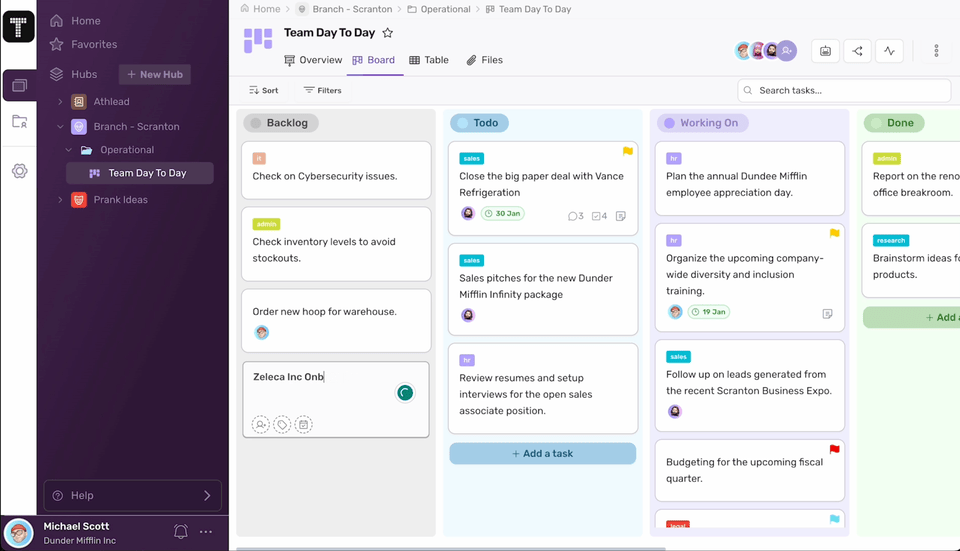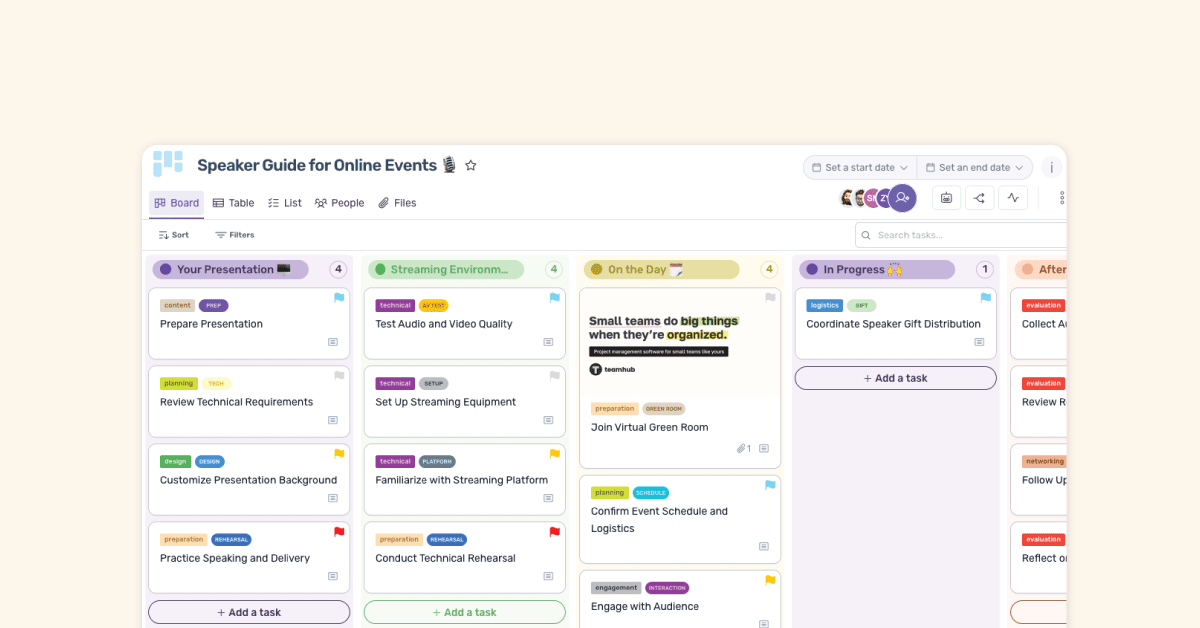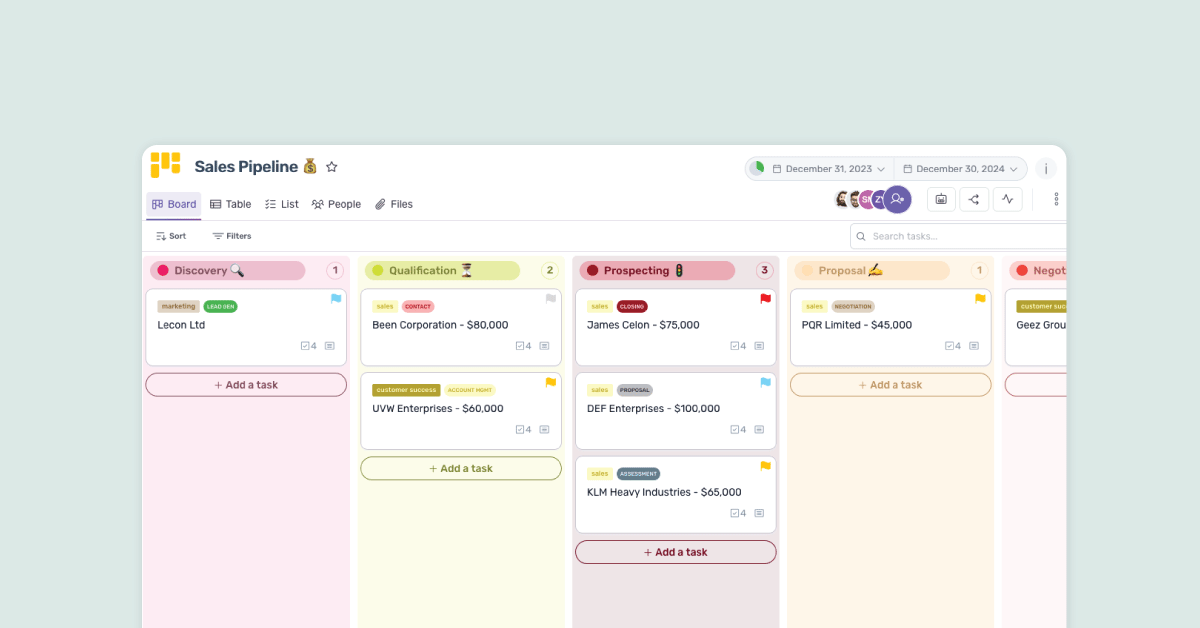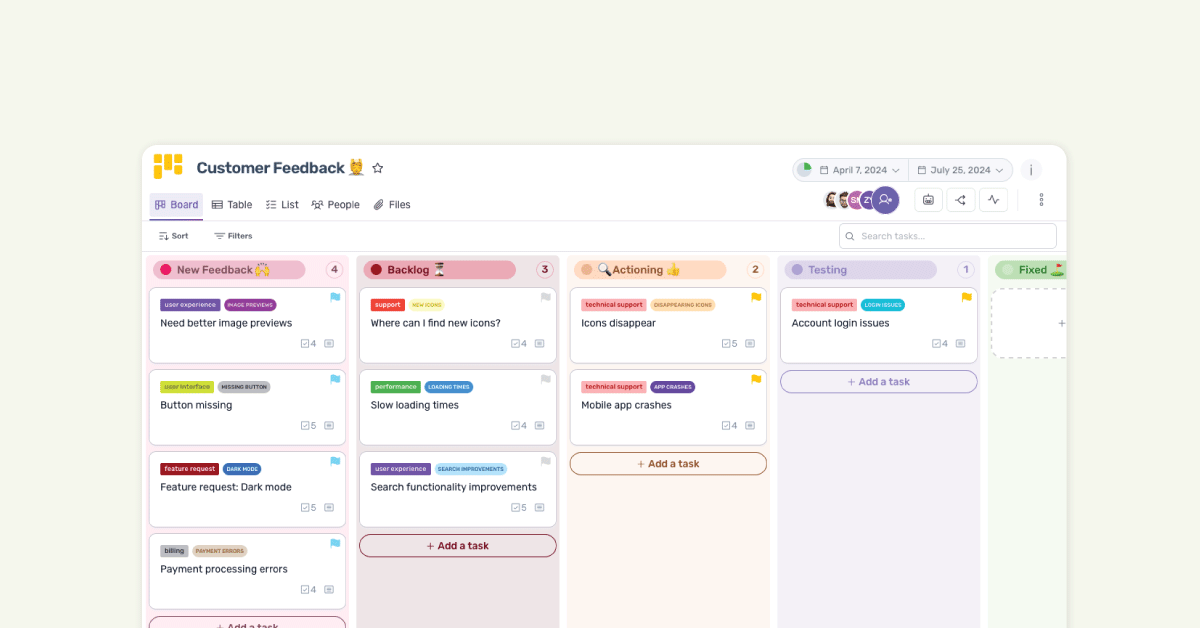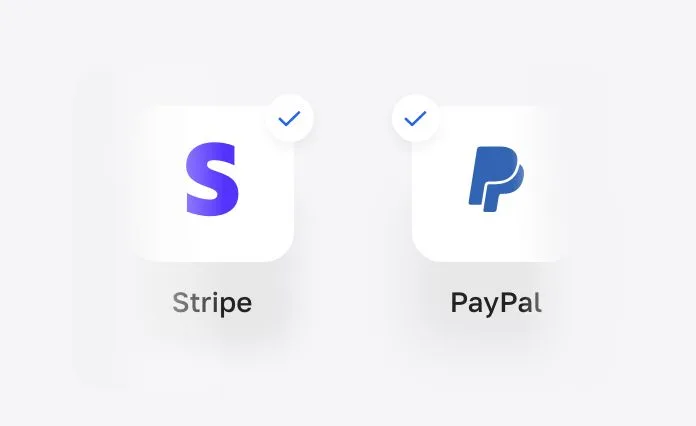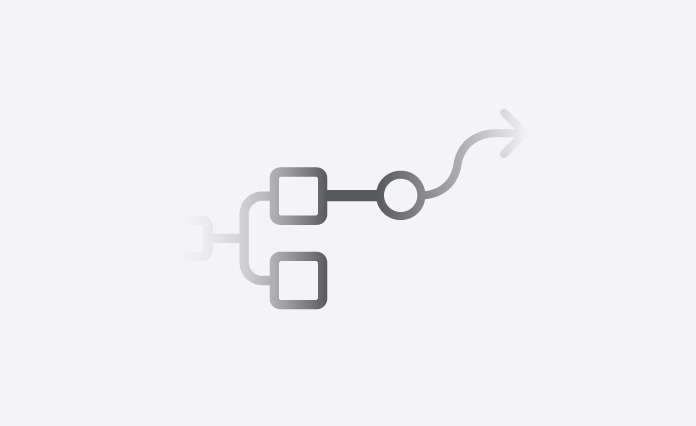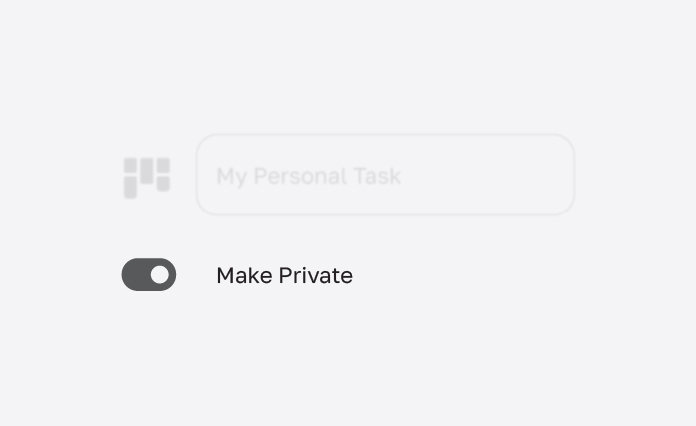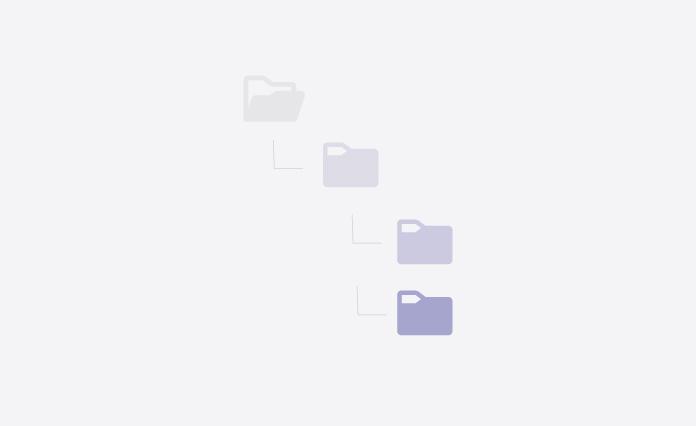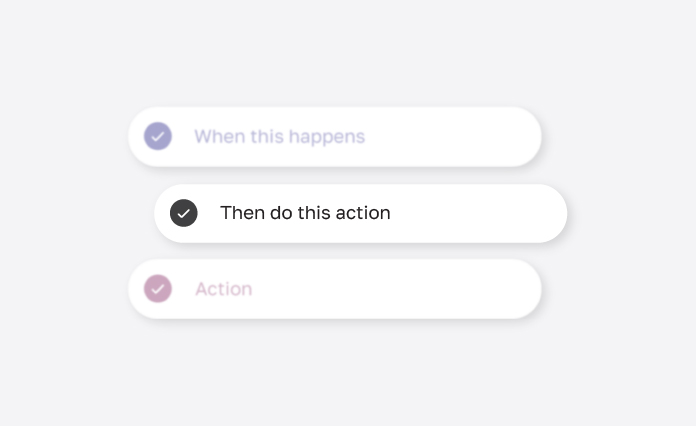Budget management plays a crucial role in successful project completion. By effectively managing project budgets, organizations can ensure financial control, optimize resource allocation, and track project costs accurately. In this comprehensive guide, we will explore the importance of budget management in project management and how project management software can facilitate this process.
Understanding the Importance of Budget Management in Project Management
Budget management is a fundamental aspect of project management that involves planning, controlling, and monitoring project expenses. It helps organizations allocate resources effectively, streamline financial processes, and ensure projects are completed within the allocated budget.
When it comes to project management, budget management plays a crucial role in ensuring the success of a project. It goes beyond simply keeping track of the financial aspects of a project. Effective budget management allows organizations to track project costs, identify potential risks or issues, and take proactive measures to mitigate them.
By managing budgets efficiently, project managers can make informed decisions, allocate resources optimally, and keep projects on track to achieve their goals. It provides a clear roadmap for financial planning and helps in prioritizing tasks and activities based on available resources.
The Role of Budget Management in Successful Project Completion
Effective budget management is vital for project success. It allows organizations to track project costs, identify potential risks or issues, and take proactive measures to mitigate them. By managing budgets efficiently, project managers can make informed decisions, allocate resources optimally, and keep projects on track to achieve their goals.
Moreover, budget management helps in establishing a baseline for project costs and provides a benchmark against which actual expenses can be measured. This enables project managers to identify any deviations from the planned budget and take corrective actions promptly.
Additionally, budget management facilitates effective communication and collaboration among project stakeholders. It ensures that everyone involved in the project has a clear understanding of the financial constraints and can work together to find cost-effective solutions.
Key Challenges in Budget Management
Despite its importance, budget management can be challenging for project managers. Some common challenges include inaccurate cost estimation, scope creep, unexpected expenses, and lack of visibility into project expenses. These challenges can lead to budget overruns, delays, and compromised project outcomes.
Accurate cost estimation is crucial for effective budget management. However, it can be challenging to accurately predict all the costs associated with a project, especially when there are uncertainties or changes in project requirements. Inaccurate cost estimation can result in budget shortfalls or overestimation, both of which can have negative impacts on the project.
Scope creep is another challenge that project managers often face in budget management. It refers to the uncontrolled expansion of project scope beyond its original boundaries. When scope creep occurs, additional resources and expenses are required to accommodate the changes, which can disrupt the planned budget and timeline.
Furthermore, unexpected expenses can arise during the course of a project, such as equipment failure, regulatory changes, or unforeseen risks. These unexpected expenses can put strain on the project budget and require project managers to find alternative solutions or seek additional funding.
Lack of visibility into project expenses is also a common challenge in budget management. Without a clear understanding of where and how project funds are being utilized, it becomes difficult to identify areas of overspending or inefficiencies. This lack of visibility can hinder effective decision-making and lead to budget overruns.
In conclusion, budget management is a critical component of project management. It ensures that projects are completed within the allocated budget, enables effective resource allocation, and helps in identifying and mitigating risks. Despite the challenges it presents, effective budget management is essential for project success and should be given due attention and consideration.
Overview of Project Management Software
Project management software is a powerful tool that helps project managers streamline and automate various project-related tasks. It provides a centralized platform for planning, executing, and monitoring projects, including budget management.
With the increasing complexity of projects and the need for effective collaboration among team members, project management software has become an essential tool in today’s business environment. It offers a wide range of features and functionalities that enable project managers to efficiently manage projects from start to finish.
Project management software is designed to simplify the project management process by providing a comprehensive set of tools and capabilities. It allows project managers to create project plans, assign tasks to team members, track progress, and monitor budgets all in one place.
What is Project Management Software?
Project management software is a digital solution designed to facilitate project planning, collaboration, and monitoring. It typically offers features such as task management, scheduling, document sharing, and budget tracking. It allows project teams to work efficiently, collaborate effectively, and manage projects with ease.
Task management is one of the key features of project management software. It enables project managers to create and assign tasks to team members, set deadlines, and track progress. This helps ensure that everyone is aware of their responsibilities and deadlines, leading to improved productivity and timely project delivery.
Scheduling is another important aspect of project management software. It allows project managers to create project timelines, set milestones, and allocate resources effectively. By having a clear and well-defined schedule, project teams can stay on track and ensure that all tasks are completed within the specified timeframes.
Document sharing is another valuable feature offered by project management software. It provides a centralized repository for storing and sharing project-related documents, such as project plans, design documents, and meeting minutes. This promotes efficient collaboration among team members and ensures that everyone has access to the latest project information.
Budget tracking is also a crucial component of project management software. It allows project managers to monitor project expenses, track costs, and manage budgets in real time. This helps prevent budget overruns and enables project managers to make informed decisions regarding resource allocation and cost management.
Benefits of Using Project Management Software
Using project management software offers numerous benefits, including improved productivity, enhanced collaboration, and better project outcomes. It allows project managers to effectively allocate resources, track project progress, and manage budgets in real time. It helps teams stay organized, reduces manual effort, and promotes efficient communication among stakeholders.
One of the key benefits of using project management software is improved productivity. By providing a centralized platform for managing projects, it eliminates the need for manual tracking and coordination. Project managers can easily assign tasks, monitor progress, and identify any bottlenecks or issues that may arise during the project lifecycle. This streamlines the project management process and allows team members to focus on their core responsibilities, ultimately leading to increased productivity.
Enhanced collaboration is another significant advantage of project management software. It enables team members to collaborate effectively, regardless of their location or time zone. With features such as document sharing, real-time communication, and task assignment, project teams can work together seamlessly and share information in a timely manner. This promotes better decision-making, reduces miscommunication, and fosters a collaborative work environment.
Better project outcomes are also a direct result of using project management software. By providing project managers with real-time insights into project progress, resource allocation, and budget management, it enables them to make data-driven decisions and take corrective actions when necessary. This ensures that projects are delivered on time, within budget, and meet the desired quality standards.
In conclusion, project management software is a valuable tool that helps project managers streamline project-related tasks and improve overall project performance. With its wide range of features and benefits, it has become an indispensable asset for businesses of all sizes and industries. By leveraging project management software, organizations can effectively manage projects, enhance collaboration, and achieve successful project outcomes.
Features of Project Management Software for Budget Management
When selecting project management software for budget management, it’s important to consider features specifically designed to support budget planning, tracking, and control.
Budget Planning and Forecasting Tools
Project management software should provide robust budget planning and forecasting capabilities. This includes tools to estimate project costs, create budget templates, and analyze financial projections. With these features, project managers can create accurate budgets, forecast expenses, and make data-driven decisions.
Expense Tracking and Reporting
Accurate expense tracking and reporting are crucial for effective budget management. Project management software should enable project teams to record and track expenses in real time. It should also offer customizable reports and dashboards to provide a comprehensive overview of project expenditures.
Cost Control and Reduction Features
Project management software should support cost control and reduction efforts. This includes features to track variances between planned and actual expenses, identify cost-saving opportunities, and implement budget adjustments if necessary. Cost control features allow project managers to proactively manage project budgets and mitigate financial risks.
Selecting the Right Project Management Software for Budget Management
Choosing the most suitable project management software for budget management requires careful evaluation of your organization’s specific needs and requirements.
Identifying Your Budget Management Needs
Prior to selecting project management software, assess your organization’s budget management needs. Consider factors such as the size and complexity of your projects, the number of team members involved, and the level of budget control required. This will help narrow down the software options that best align with your requirements.
Evaluating Software Features and Capabilities
When evaluating project management software, consider the features and capabilities specifically related to budget management. Look for software that offers comprehensive budget tracking, expense management tools, and reporting functionality. Additionally, ensure the software integrates seamlessly with other systems or tools your organization already uses.
Considering User-Friendliness and Support
User-friendliness and support are essential factors when selecting project management software. Consider the software’s ease of use, intuitive interface, and availability of training resources or customer support. A user-friendly software will help ensure smooth adoption and usability among project team members.
Implementing Project Management Software for Budget Management
Implementing project management software for budget management requires careful planning and smooth execution.
Steps for Successful Software Implementation
When implementing project management software, start by defining clear objectives and goals. Develop an implementation plan that outlines key milestones, responsibilities, and timelines. Communicate the implementation plan to all relevant stakeholders and conduct training sessions to familiarize team members with the new software. Regularly monitor the implementation progress and address any challenges or concerns that arise.
Training Team Members on the New Software
Effective training is crucial for successful software adoption. Provide comprehensive training to all project team members, ensuring they have a thorough understanding of the software’s features and functionalities. Offer ongoing support and encourage team members to provide feedback and suggestions for improving the software’s usage and effectiveness.
In conclusion, budget management is a critical aspect of project management, and project management software can greatly enhance the budget management process. By understanding the importance of budget management, selecting the right software, and implementing it effectively, organizations can optimize resource allocation, control project costs, and achieve successful project outcomes.

